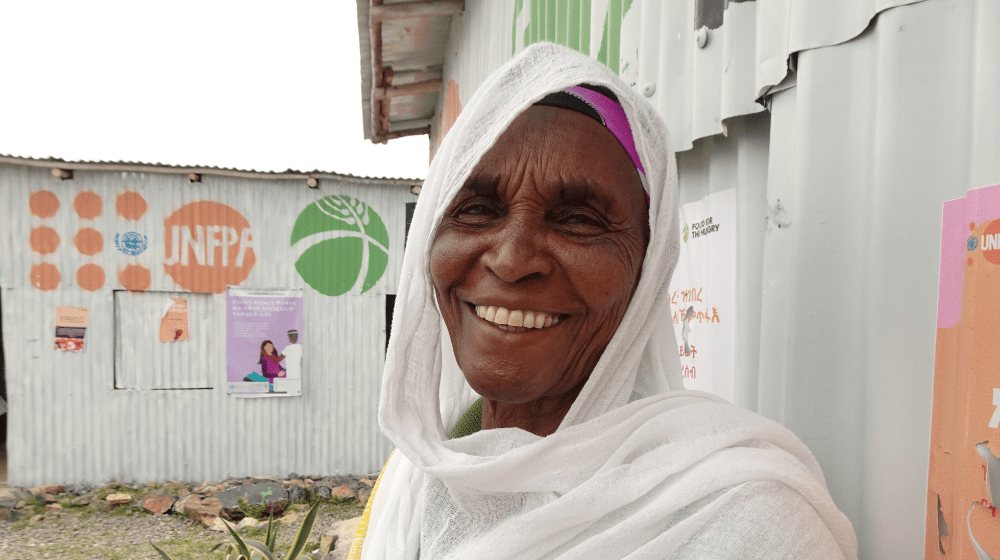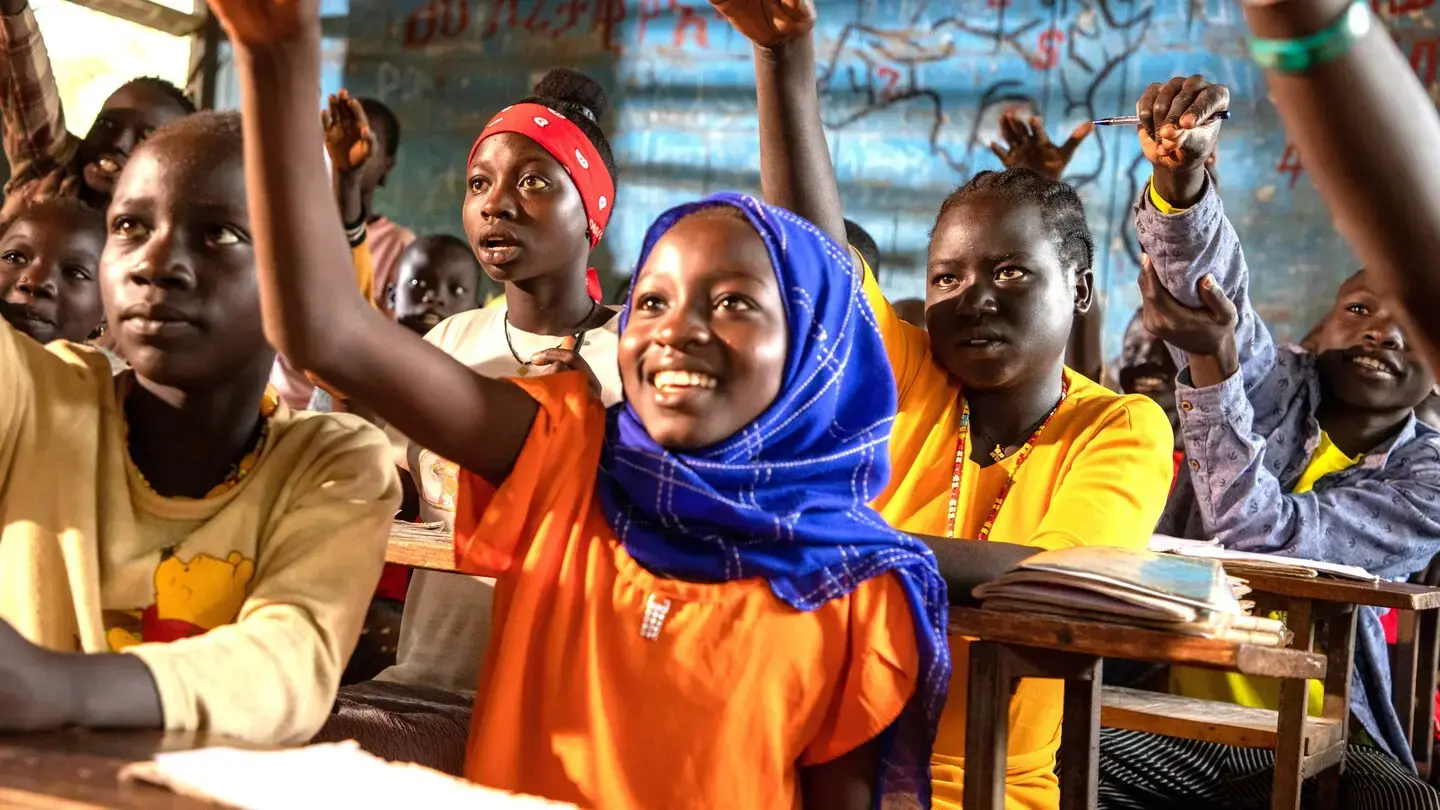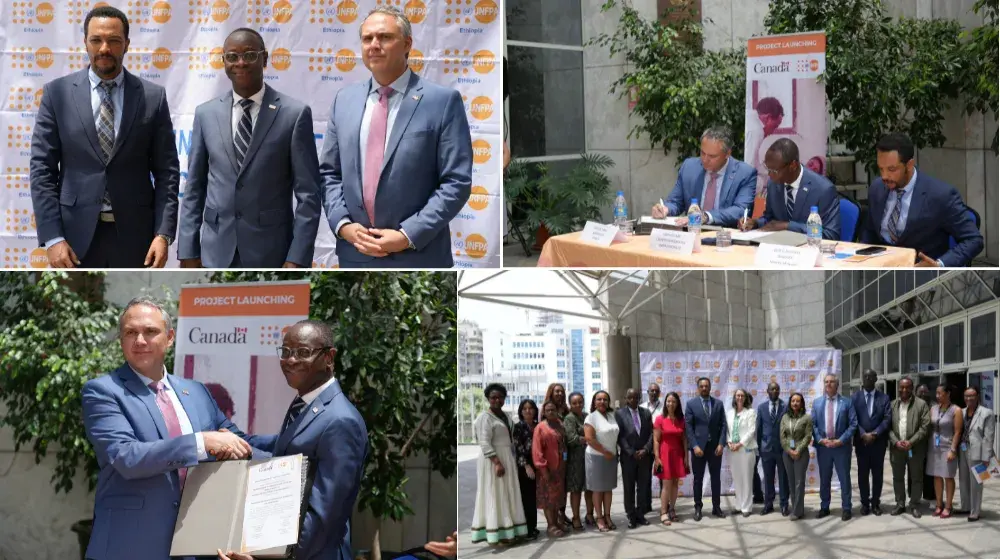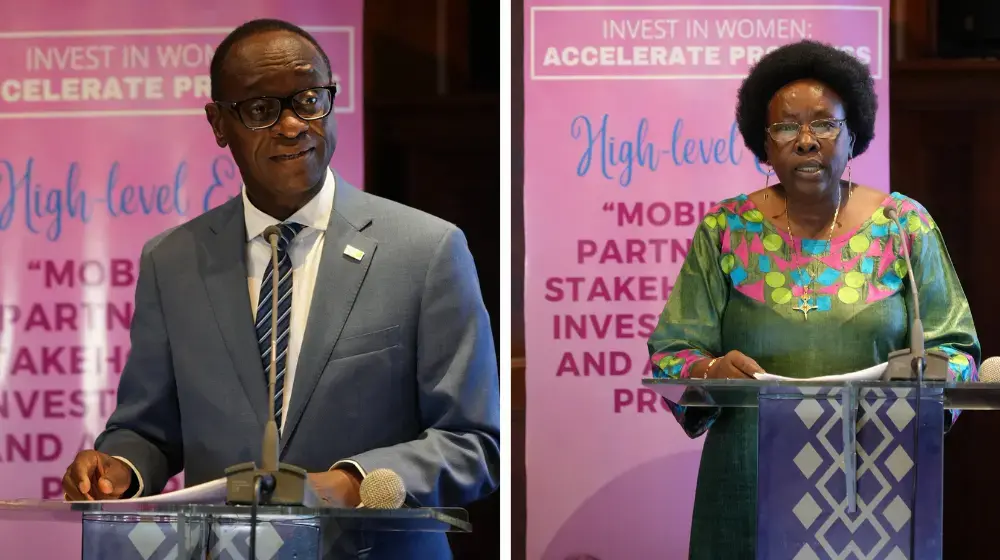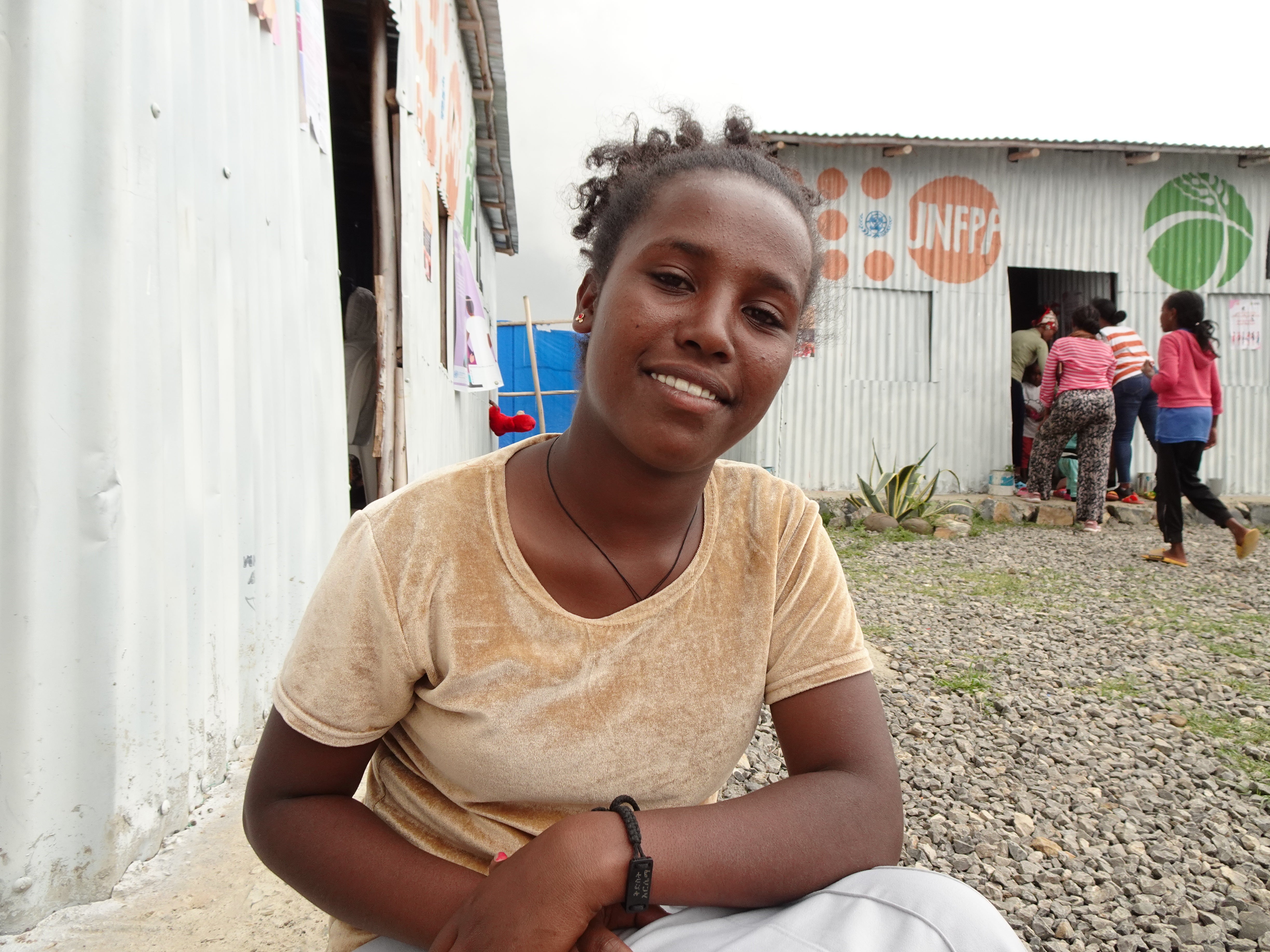
is a regular at the WGFS at Sebacare IDP camp in Mekelle.
Mekelle - Ethiopia | Sindayu Gebru (18), an aspiring singer and poet, is a regular at the Women and Girls Friendly Space (WGFS) at Sebacare IDP camp in Mekelle. Sindayu is a born artist, often receiving standing ovations for her performances. “I come here to learn new skills like knitting and stress management, and I also learn about my rights.”
She speaks highly of the space, calling it her "safe haven" where she can play, learn, and confide in other women and girls. Safe spaces are hard to come by in Sebacare, housing more than 22,000 IDPs, it is one of the largest camps in the region.
According to Tarik Birhanu, a case worker at the WGFS, art and music is just one of the many tools used to develop important skills and provide a creative outlet for the women and girls attending the sessions, ‘it’s not just for entertainment, it’s a tool for self-expression and in effect, some mental relief.”
Tarik, is one of six social workers at the WGFS. Every week, - she and her colleagues provide information and skills training to more than 500 women and girls that visit this space. Tarik is proud of the women and girls that visit the space, "you can clearly see a change in their attitude; they are more confident and more outspoken. This space has become invaluable to so many.”
Safe Spaces in Tigray
The WGFS at Sebacare was established in 2021, as part of the UNFPA and Food for the Hungry Ethiopia’s (FHE) initiative to create WGFSs for displaced women and girls. This initiative, supported financially by the government of Canada, is one of more than 16 WGFS established by UNFPA and its partners in Tigray.
This WGFS caters to hundreds of women and girls through its information and outreach program every week, offering a wide range of services, including information and awareness sessions, adolescent girls' sessions, and the distribution of dignity kits and non-food items (NFIs). The space also has a nursery, allowing mothers to attend sessions while their children play safely nearby.
In partnership with Maedot Aid, women, and girls are also able to receive critical sexual health services at the WGFS in Sebacare, including treatment for Sexually Transmitted Infections (STI), contraceptives, and referrals.
Beyond the “Safe Space”
Outside of the safe space, social workers at the WGFS at Sabacare IDP camp have an outreach program. Once a week, Tarik and her colleagues go house to house to provide information sessions on Sexual and Reproductive Health (SRH) and Gender-Based Violence (GBV).
Medhin Gebru (40) is one of the many women Tairk was able to reach during one of their community outreach sessions at the IDP camp. Medhin, a mother of three, is a vibrant member of the WGFS community at Sebacare. Despite her disability that restrains her mobility, she has never missed a session. She even managed to start knitting classes. “It means everything to engage with your community, to have a skill and share it with others. It's so empowering to have a sense of purpose,” she says.
Before being displaced, Medhin was a successful businesswoman in the town of Humera. “I used to sell everything,” she says. Despite the many challenges she has faced, Medhin’s entrepreneurial spirit has persisted. After receiving skills training at the WGFS she started producing and selling soap with her three friends. Their goal is to establish a business in the camp to support themselves and their families.
The WGFS is also a vital entry point for Gender-Based Violence intervention. By fostering a safe and supportive environment, Tarik and her team at the WGFS safe space at Sabacare IDP camp have become a critical linkage point for survivors to access protection and critical medical and mental health support.

